The 80 Years War (until truce)
The Dutch fight for religious freedom, and its grave repercussions.
THE DUTCH
(1566-1572)
Why talk about the 80 Years War? Because, human history was fundamentally altered by the actions both the Spanish and Dutch took against one another, first setting the stage for the largest war in human history up to that point (30 Years War), and also creating systems which would come to define the modern world (Capitalism and Imperialism). It’s also just a pretty “cool” conflict, 80 years is a long time to be fighting, not to mention I have an obsession with the Dutch Republic.
To preface, the Spanish Netherlands, obtained by Maximillian the 1st’s1 marriage to Marie of Burgundy, has now been under Habsburg rule for nearly 100 years, now given to the Spanish branch of the family. It is made up of many groups of people, Franks2, Walloons, Flemish, Frisians, Germans, Luxembourgers, and most importantly of all, The Dutch.
I’m going to first explain the cultural state of the Spanish Netherlands come 1568. Holland and the other northern provinces are in extreme turmoil, the Protestant Reformation has utterly rocked the Holy Roman Empire and these provinces are some of its greatest benefactors due to their massive wealth and high population, whom are majority Protestant, funding the spread of the Reformation throughout the empire3. The rising middle class is extremely Protestant, so the wealthiest people in the Spanish Netherlands are now diametrically opposed to the radically Catholic Habsburgs. HOWEVER, the southern Netherlands (modern day Belgium) are still majority Catholic, and quite loyal to Spain. So to recap, we have a disconnected, high in population, wealthy region, with massive sectarian conflict brewing, who are lorded over by the most Catholic rulers in all Europe.
This powder keg was almost certainly bound to blow, the Spanish had simply overstepped and angered everyone, while not actually solving the problem, and so of course it did4, it began as a small rebellion in towns across the northern Protestant regions, as well as the protestant minority regions in the south, namely Flanders and Wallonia. It was small enough that the Spanish garrison could just repress it, but it would cost time and Dutch lives, which only fueled the fires of rebellion more. The Dutch had long been under the boot of either the Holy Roman Emperor5 or the Burgundian Dukes for centuries at this point, and the Reformation gave the cause finally needed to incite proto-nationalistic fervor6. However, it must be said many were not in favor of revolt, even in the north. Not everyone was a Protestant radical, and some had prospered under Spanish rule, leading to even more divisions amongst the people of the north, and ESPECIALLY the more divided south.
These small rebellions would amount to very little actual gains for the rebels, but it would cause an increase in fervor across the north7, though it once again wouldn’t amount to much as Willem van Oranje8, the current Prince of Orange (nicknamed the silent due to his shy and cautious nature) and the most famous noble in all the Netherlands, a once loyalist turned rebel by the extremities of Spanish rule, he had been exiled for years at this point and had returned to attempt a revolt which would place him in power. He failed to inspire revolt across the Netherlands and was sent back into exile, though he wouldn’t give up this dream for long. Strangely, he was still a Catholic, he just had Protestant leanings, and a thirst for power unquenched.
Generally the Spanish held it together “well”, they managed to repress the rebels, but still failed miserably in quelling discontent, thereby ensuring the Dutch and other Protestants weren’t going to give up anytime soon.
REVOLT
(1572-1576)
After the failure of these small revolts, and their failed repression, it had further exposed the weakness of Spanish rule, this weakness would become obvious to any and all anti Spanish dissidents, leading them to collectively give it another shot.
The Seabeggars (Watergeutzen in Dutch) longtime anti-Spanish pirates and Dutch patriots attack all across the coast. Many a small coastal town falls to these liberators (pirates), and it inspires the twice exiled Willem to try again, and this time he succeeds, and captures the undefended town of Brielle (as pictured above). This once again fails to inspire general revolt, but it does lead the ever paranoid Philip II of Spain to order a massive crackdown on all Protestants (Willem is still Catholic for the record). This might have just be the single dumbest thing he could’ve done.
Learned readers may note that I’ve neglected to mention Fernando Alvarez, Duke of Alba - the governor general of the Spanish Netherlands - once. This was intentional, because he has very little interesting about him, being a boring inbred noble from Spain, alongside being a complete incompetent lunatic incapable of putting down the rebels, with extreme force, or complete acquiescence, with zero attempts at negotiation, which just ended up giving their cause more ammunition with brutal crackdowns, like destroying churches, confiscating wealth, and just random acts of murder and rape9, alongside stupid systems like the Council of Troubles, a piss poor attempt at appeasement, which only further aggravated landholders and merchants. which somehow managed to anger everyone, even Catholics who were in favor so Spanish rule.
Oranjists and Geutzen began to rapidly seize port after port across the coast of the Netherlands, with barely any resistance it seems. It was as if the Spaniards were just acquiescing. They aren’t… they just fucking suck at this, their troops undisciplined and leadership incompetent. When the Spaniards actually did something, those towns which did join the rebels were eventually sacked, with all the rape and slaughter that comes with it. Most notorious was the 7-month siege of Haarlem, as the garrison surrendered only to be massacred by the Spanish regardless.10
Safe to say Alba left a bad taste in the mouth of the average citizen of the Spanish Netherlands, which made the average citizen much more favorable to the rebels, leading to swelling numbers, which finally allowed Willem and Geutzen to take initiative, winning a series of small battles and eventually leading to the recall of Alba back to Spain at the end of 1573.
His successor Requesens was actually not that bad, favoring diplomacy, but Alba had bungled it so badly that any hope of negotiating with the rebels was impossible, by taking all of their land, money, and probably killing their friends and family, leading the rebels to continue taking town after town.
Then, shit gets really really bad.
In 1575, the Spanish Kingdom declares bankruptcy, due to its over reliance on gold, and extreme inflation, and following this, Requesens suddenly dies11, meaning the Spanish are now without leadership or pay.
You can guess what happens next.
Ghent to Utrecht
(1576-1579)
That last bit, about Spanish bankruptcy? That would lead to massive mutiny among the troops, leading to the sacking of Antwerp, killing 8000 militia and civilians, and totally looting the city: one of the richest in all Europe.12
This caused every province except Luxembourg to revolt, because of the mass looting, raping, and murdering done by the Spanish troops across the Low Countries, even the majority Catholic south. Finally, all the rebels, Catholics, Protestants, Oranjists, and Geutzen, all came together at Ghent in November of 1576, and agreed to an alliance against the Spanish until SELF-RULE, not independence, was granted.
With that bit of recap, I finally get to give my thoughts. In my ill-educated and drug destroyed brain, even I can see the Spanish didn’t just fuck up, they actually acted so stupidly that everyone, and I do mean everyone, agrees that Spain made horrible decisions in the Netherlands.
The part where I differ from most on this is that I genuinely think the Spanish could’ve kept hold of the entire Low Countries if they had offered an olive branch. As you will see through this, and past this, the Spanish had literal dozens of chances to bring them back into the fold fairly, and they instead chose brutality.
It has to be one of the largest cases of historical schadenfreude I can think of. Especially this very important fact: the Dutch had, by Ghent, obtained naval supremacy over the world’s most powerful empire.

As shown on the map above, the Spanish had fucked up royally, but they still were the largest most powerful empire on Earth13, so it was thought that it was unlikely to stay this bad for long.
Enter Don Juan, victor of the battle of Lepanto, half-brother of Philip II of Spain, and all-around competent guy. He is named the new Governor of the Spanish Netherlands, and receives an order to fix the situation. He does this by opening negotiations and agreeing to every single demand (including Dutch state Catholicism), signing the Edict of 1577, while on the backhand launching an assault on Namur, retaking its citadel and dealing a pretty bad defeat to the rebels. This caused the rebels to instead further rebuff Spanish rule, and let to Willem taking the role of leadership over the revolting provinces.
In retrospect the flip flopping can either be read as a deliberate move, or as Juan changing his mind, and neither is known for sure. What is known is that the “renewed” rebel tenacity was CRUSHED by Juan in the beginning 1578 at Gembloux, where thousands of rebels were killed or wounded with only around 20 Spanish troops dead.
With this the Rebellion began talk of surrender, and matters weren’t helped when radical Calvinists decided to capture multiple cities, most notably Ghent, and declare Calvinist republics. This further alienates the already iffy Catholics as the Calvinists begin to burn them at the stake and take all of their possessions14. With this, the formation of the Malcontents, who were a union Catholics in the southwestern regions, had been complete, and the southwestern Walloon provinces around Artois and Hainaut began to work against Willem.
Then, Juan would be turned around at Rijmenam, and would die of a fever two months later, being replaced by Matthias of Austria. This meant little in the short term, however, as Juan’ second in command Parma would use the rise of the Malcontents to wedge a larger divide between them and the rest of the Dutch States-General, the temporary governing structure, leading to the Malcontents of Artois and Hainaut signing the Union of Arras15, seeking reverting to Catholicism and a more amenable peace with the Spanish, signing a separate peace and ending the revolt in the south.
The Dutch speakers in the north, however, refuse to yield even with the loss of the south, instead convening in Utrecht, and committed themselves to a more radical alliance under the Union of Utrecht.
Things Fall Apart.
(1579-1588)
After Utrecht, the Dutch declare practical independence with the Act of Abjuration. You’d think with this newfound resolve the Dutch would finally find their footing.
They don’t.
They instead lose a lot of battles, like a lot of battles. Parma manages to practically retake all of Flanders, and Wallonia over years of attack on the new Dutch state. The Dutch faced a political nightmare, struggling to figure out a head of state, or even a form of government. You may think “Why not Willem?” But he was still Catholic, which wasn’t popular up north, so they attempted to find many others. At first they tried to grant head of state to Matthias, but he refused as he did not agree with limited powers, especially to rebels. Then Francis of Anjou, who ended up being deeply unpopular due to his attitude towards the position (not having unlimited powers), and Catholicism. He would be ousted in Favor of Willem, who would be assassinated in 1584 (talked about more below), leading them to then elect Robert Dudley, Duke of Leicester as their head of state, Robert was faced with an impossible situation, underfunded, outnumbered and outclassed, he would lose to the Spanish, and be evicted from the head of state role.16
Instead, they give up on a having a proper European head of state, and instead declared a “republic” with a king-like figure called a Stadtholder in 1588. The first Stadtholder would be Maurits, Willems son, and he would share power with the Dutch states, which functioned as independent entities, “electing” their own representatives, or raadpensionaris. The Stadtholder would command the army, but also assume a sort of head of state role, where they had an unequal power share with the raadpensionaris in the Stadtholders favor. The estates however reserved the right to evict the Stadtholder if they were unneeded or dangerous to the republic. The republic also did not require a Stadtholder to function, as they merely were the face of the Republic, and its commander and chief.
During this political fiasco, the Spanish would make even more gains. In 1585, they would the take Antwerp, the capital of the revolt, dealing a crushing blow to the rebels. After this, Parma would stop his offensives due to the French Wars of Religion breaking out, as well as the failure of the Spanish Armada to destroy the Anglicans in England.
In 1584, Willem was assassinated by a Catholic loyalist named Balthasar Gérard, a former Spanish auxiliary soldier, Gérard had pretended to be a French noble, and had presented himself as an ally of Willem, giving him the seal of a minor noble, Willem would then send him to meet with his allies, and on his return trip Gérard would purchase two pistols, and then use them to shoot Willem. His son Maurits of Nassau would take over as the Stadtholder, and Prince of Orange. With Parma’s withdrawal, Maurits would begin a campaign to retake their losses…
Things Fall Apart Again, or The Ten Years
(1588-1598)
The Ten Years are why I made this article, plain and simple. This conflict changed human history as we know it. To begin with boring stuff, Stadtholder Maurits alongside the Estates General, His cousin and Stadtholder of Friesland, Willem Count of Nassau-Dillenburg, and finally their English allies under General Francis Vere, began a sweeping offensive to take back lost lands from the Spanish. This required money, lots and lots of money, money even the English couldn’t provide. This created quite a problem, so the Estates General with the help of Maurits began funding almost every single colonial venture company which was pitched to them. This would lay the groundwork for the eventual founding of the VOC, or Verenigde Oostindische Compagnie, the most wealthy company in human history. It would begin Dutch colonialism, which would spawn modern Imperialism, not the Spanish “Glory and Gold” kind, the “Protectorates and Slavery” kind, the one that makes a lot more money.
I won’t speak much on specific battles here, but know that the Dutch won an impressive string of victories against the weakened Spanish, allowing them to actually gain the upper hand for the first time in the war.
This boom of new trade goods led the Dutch to being making the first proper modern manufactories, becoming the workshop of Europe and its most powerful economy. This inadvertently created what we know as modern capitalism, as the English would go on to copy the Dutch model, for all of their future colonies and economic structure. The English would improve upon the Dutch systems, but it was the Dutch who invented these systems to begin with. I would go as far to say as the Dutch Republic being the first state-capitalist entity in history, due to it’s liberal use of state companies to expand overseas or manufacture back home in the provinces.
It is heavily debated whether or not these were good things but their importance is UNDENIABLE when it comes to modern human history.
As for the the campaigns, the Dutch would find themselves winning battle after battle over the titular ten years, retaking much of what was lost in southern Holland, and by doing this would establish the modern borders of the Netherlands as we know them, failing to retake Flanders, but cementing a Dutch border.
Dutch politics would stabilize under the new republic, which was declared with little celebration, more cold determination. The Anglos would heavily involve themselves post the defeat of the Spanish Armada by the English in 1588, seeing a chance to really stick it to the Spanish.
Maurits would undertake massive military reforms, turning the once unorganized mess that was the revolt into a functioning modern military. In fact, they would revolutionize structure and logistics, leading to a certain Swedish king named Gustavus Adolphus copying the Dutch army (wonder if he will come up again?)
Finally, the amount of Protestants fleeing the Spanish from the south would lead to such economic prosperity for cities like Rotterdam, The Hague, and most importantly Amsterdam, that they would blossom into the largest cities in Europe, with the latter being larger than even London, as well as Protestant majority strongholds from which the Reformation could further aggregate.
Now I love seeing Spain get thoroughly as much as anyone else, in fact most of Europe was cheering for the Dutch by this point.
But.
The damage the Dutch would cause on the world with these actions, would be unfixable, the destruction of cultures, peoples, and their land via exploitation haunt entire continents (Africa and Asia) to this very day. Worst part is, the English get all the blame, while the Dutch just get ignored as the funny legal drugs bike riding country.
Peace?
(1599-1620)
After the immense success of the Ten Years, the Dutch would find themselves in a stalemate, winning small victories like Nieuwpoort (1600) but also losing at Ostend. Militarily this period had little happen, but economically in 1602 we see the official founding of the VOC, and also see the Dutch economy tumble due to the conflict weakening the Dutch ability to trade while also expanding their navy and army, and the Spanish declare bankruptcy (again) in 1607, due to even more gold inflation destroying the value of the Real.
Also in 1607 is my “favorite” battle of the war, due to its uniqueness, as a raid on on a place thousands of miles from The Netherlands, the Battle of Gibraltar (pictured below), in which the Dutch destroyed a docked Spanish fleet with no ships lost. Which effectively brought the Spanish to the negotiating table the next year.
With this, the Spanish and Dutch were both practically tapped out. Economically, the war was becoming more unfeasible for both sides. The Dutch, however, would come out of the truce as the “winner”.
The Spanish would “temporarily” recognize Dutch independence for the duration of the truce, the truce would last 12 years expiring in 1621. Both sides would cease piracy and privateering, the Dutch would be granted trading rights under the same clause the English had under the treaty of London. The Dutch in exchange would end their blockade of the Flemish coast, but would not allow free access through the Schledt, making the main lifeline of the region inaccessible to the Spanish. All southern families of wealth would receive restitution from the Spanish crown, and be allowed to return south (not many would as they had to reconvert to Catholicism to do so)
No treatises would be agreed upon in regards to colonies, nor on religious minorities in both the Republic and Spanish Netherlands (which would end up causing problems in both areas)
The Dutch would soon found the town of Batavia (modern day Jakarta) on Java, as well as begin expanding the VOC, raking in TONS of money preparing them for another war quite easily. As well as this, Johan van Oldenbarnevelt who negotiated the deal, would receive a lot of praise back home, making him the second most powerful man in the republic. After the truce, inter Protestant religious turmoil happened between two different sects, Oldenbarnevelt tried to go against Maurits, his coup failed and was executed for it. This would cause a bit of unrest across the country, slightly weakening the republic.
Spain’s situation was not so fortunate, as they would lose a lot territory, and had declared bankruptcy the year prior, though still the most powerful empire on earth, the Dutch had brought them down quite a few pegs, and they wouldn’t forget it. Their prestige took a huge beating, particularly on the seas, where both England and the Dutch had crushed them. The Habsburgs had definitely been made to look weak, and it’s unlikely they would tolerate it for very long (they didn’t).
The south of the Netherlands would prosper under the truce. Finally being allowed to revive its vast agriculture, it would quickly become livable again. A big issue remained, which was the fact that most Protestants had fled north, taking a lot of wealth with them, but also totally cementing the Counter-Reformation in the south, entrenching Catholicism. The south also became a center of cheap goods, which they were unable to capitalize on due to the closure of the Scheldt and its ports such as Antwerp, which the Spanish would attempt to bypass many times, often to failure. This lead to south having to trade overland with the Empire and France, making their cheap goods far less valuable.
This would not be the end of the 80 Years War, it would resume in 1621, but by that time the 30 Years’ War had broken out, which leads me to consider it a part of that greater conflict, hence its lack of coverage here (Don’t worry! I’ll be covering it when I write on the 30 Years’ War).
My general thoughts? The Dutch and Spanish were both horrible, and this war was horrible like any other. What makes it far more interesting is how it often more closely resembled a modern war than any other war from this era, with stalemates resembling something from 300 years later, to economic warfare closely resembling the 7 Years and Napoleonic Wars. The reasons for war more closely resemble that of the 19th century than the 14th, with a sort of nationalism, alongside economics, though the sectarian violence was very much a product of its time. This is not mentioning the fact, the ramifications this war had were world changing (as mentioned before).
In conclusion, the 80 Years War created modern capitalism, imperialism, and worst of all, the Dutch Empire, arguably one of the cruelest empires to exist, made worse by the fact it inspired the English to create their own horrible empire.
Next up, I’m going to discuss the death of a god.
Thank you for reading.
Personally my second favorite monarch of all time
The French at this time still referred to themselves as Franks, even though they had formed the French identity, just a weird little quirk.
Historians argue that taxes and land disputes were other leading causes, but almost every contemporary source I’ve seen or read places religion as the largest factor, hence my focus on it.
This period is called the Beeldenstorm, though it was spread across all of Western and Central Europe(and thus goes by multiple names, such as The Great Iconoclasm in English, or Bildursturm in Deutsch)
The Spanish Netherlands was technically ruled over by both Philip II of Spain and Ferdinand I the Holy Roman Emperor, leading to a gray area of rulership, Spain took precedence over the Austrian Emperor in this case.
In many ways a sectarian conflict, in many others inspired by the want to rid themselves of Spanish and other rulers, I call it proto-nationalistic due to Dutch identity playing a large part in this.
I sadly don’t spend much time on this period of the conflict for the sake of brevity, but I highly recommend reading about it separately, for sources it pains me to say but Wikipedia is your best bet as a non-Dutch speaker.
Known better as William of Orange.
It cannot be understated how brutal Spanish crackdowns were, they were cruel and exceptionally brutal as to instill fear in their subjects
This included women and children as well, the women and children, alongside the soldiers were both subject to rape and torture, and accounts (which could be false) say that almost every house in the city was ransacked for valuables.
His cause of death is still unknown.
Like in Haarlem, the populace (women and children included) are subject to rape, torture, and murder.
The Dutch were massive underdogs throughout the whole war, and this cannot be understated.
These Calvinists were extremely cruel to Catholics, and give lots of ammo to the Spanish among the Catholic population of the Low Countries.
This was a majority Frank and Walloon area, extremely Catholic region.
Francis was doomed from the start, but did remarkably well given his circumstance, his biggest mistake was taking his politique allies from England with him to the republic, which made him appear very elitist and almost plotting.
Credits:
Thank you to Selina and Sam for reviewing the article and giving me pointers, I don’t know where I’d be without you.
Thank you to my girlfriends Rose and Selina for encouraging my writing and giving me hope.
Thank you to all my friends who told me to do this, its been a deeply cathartic experience to just write about what I love.
And a special thanks to Shmulik and August, I never would’ve met any of these people if it weren’t for you two, I owe you a lifetime of gratitude.


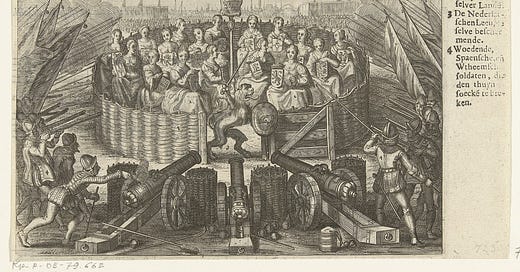



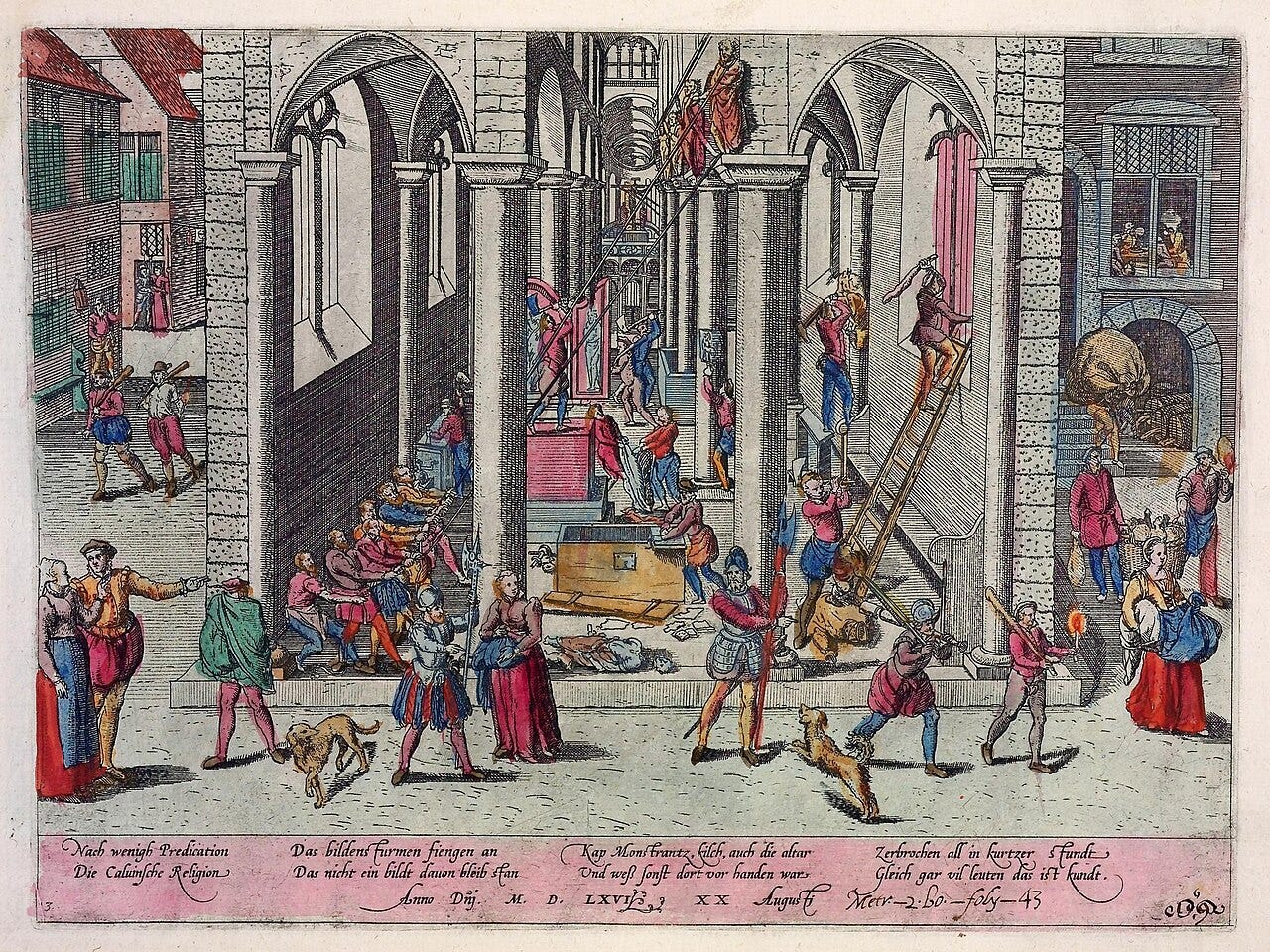
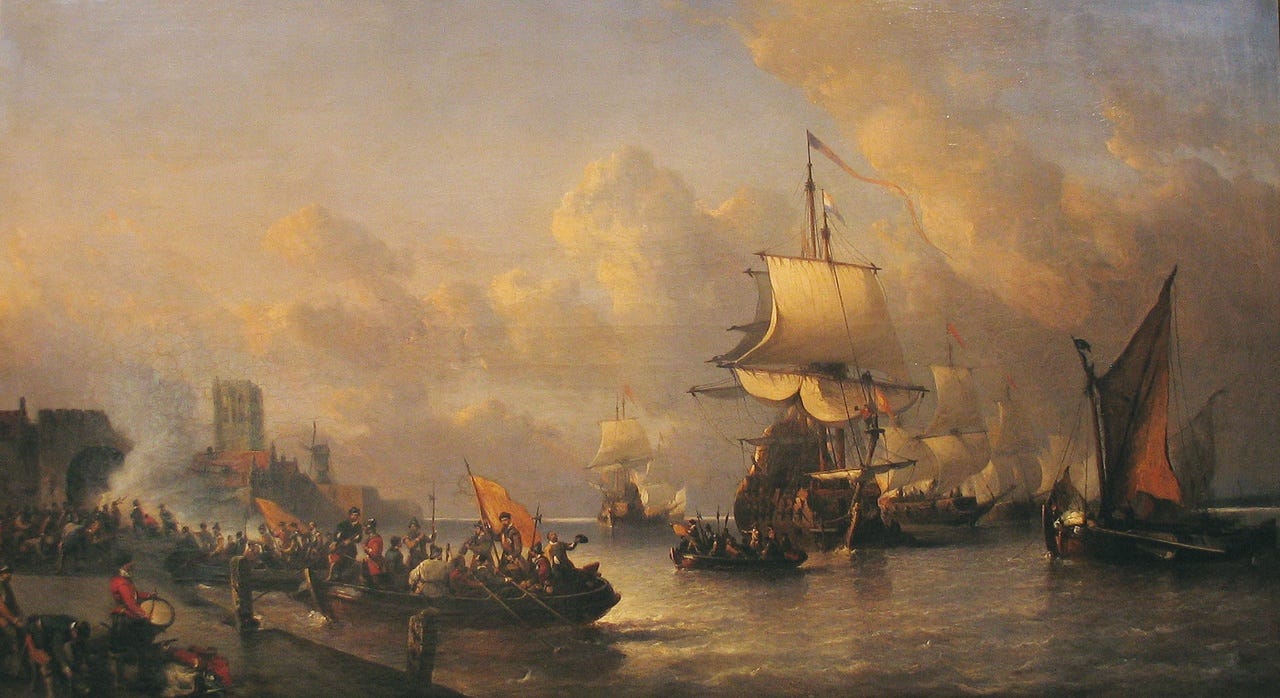
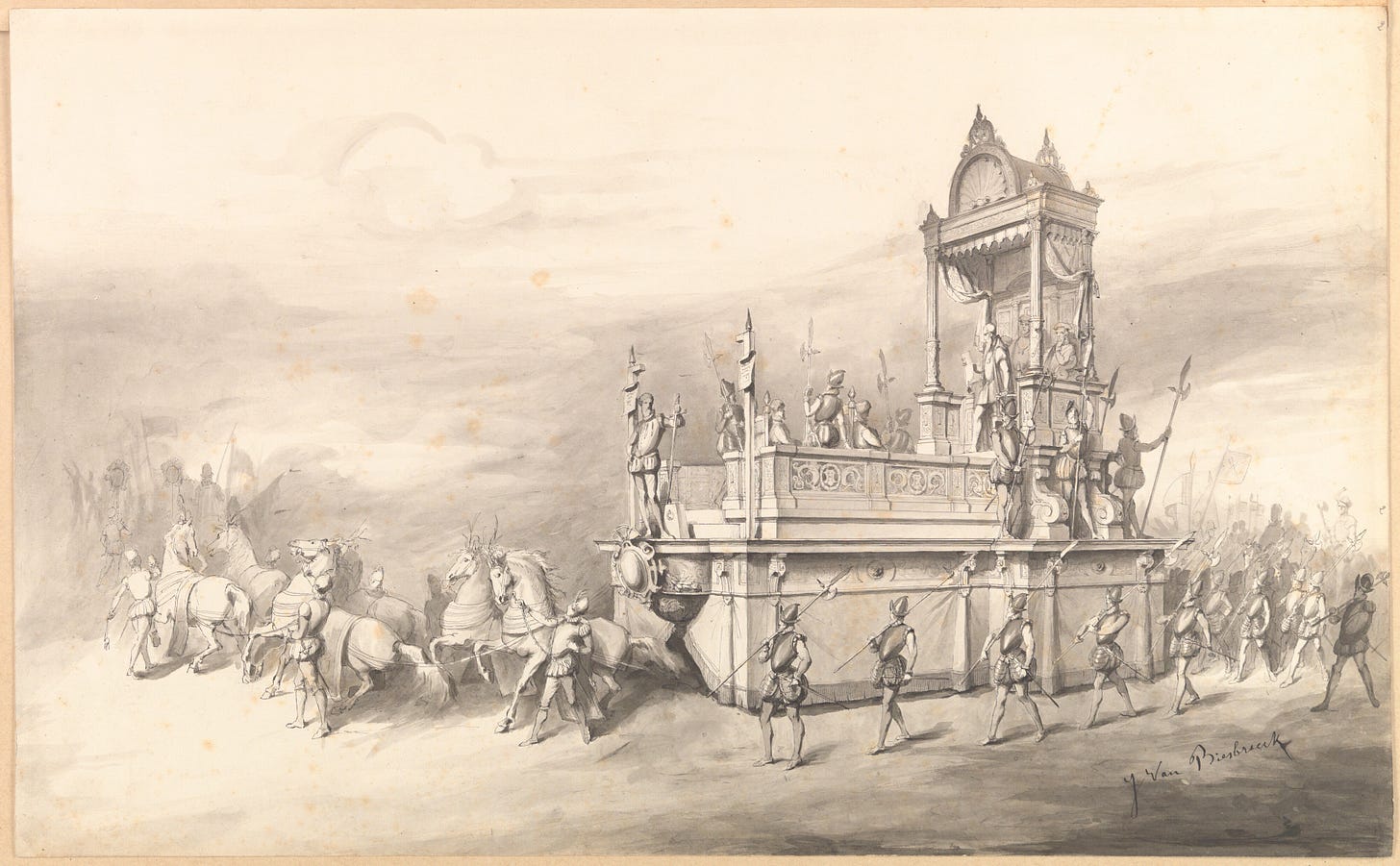
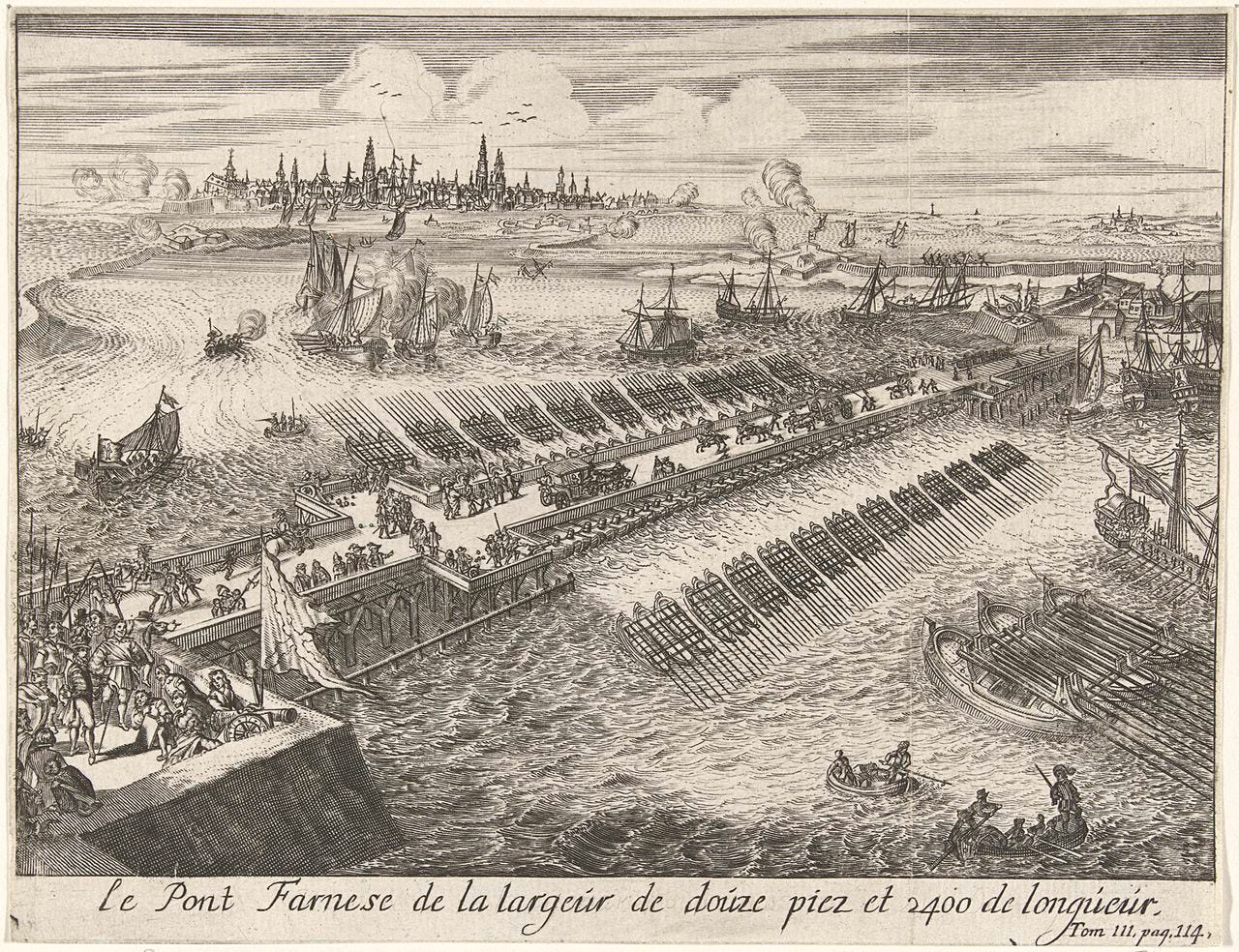
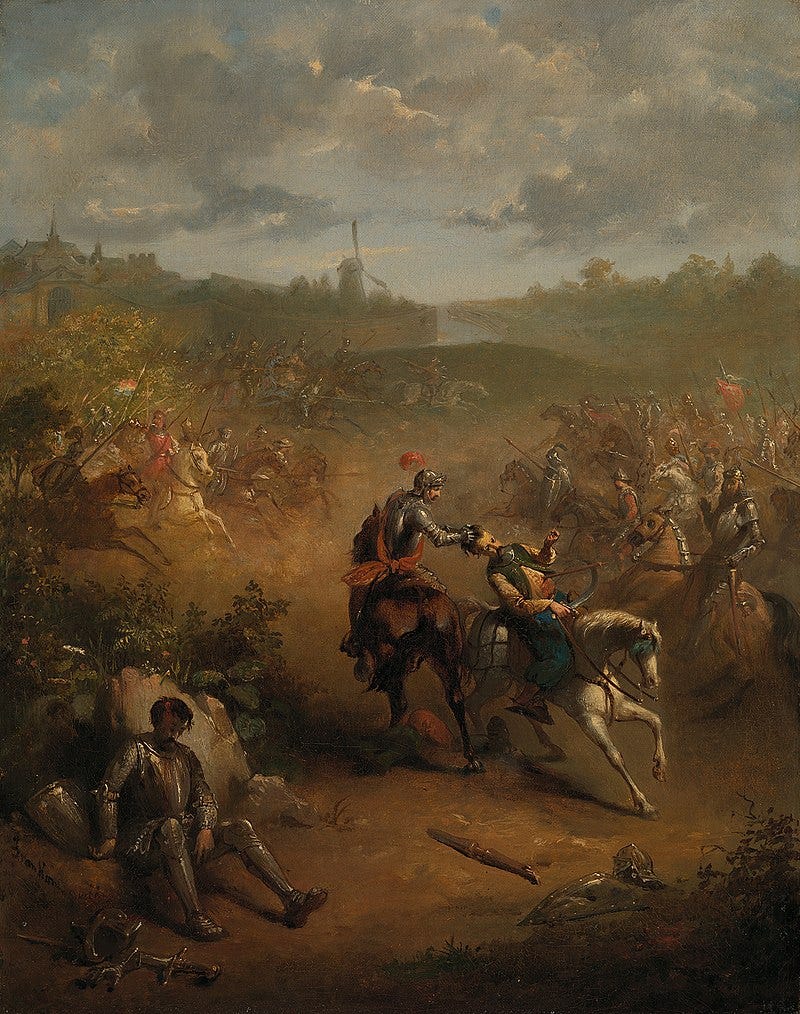
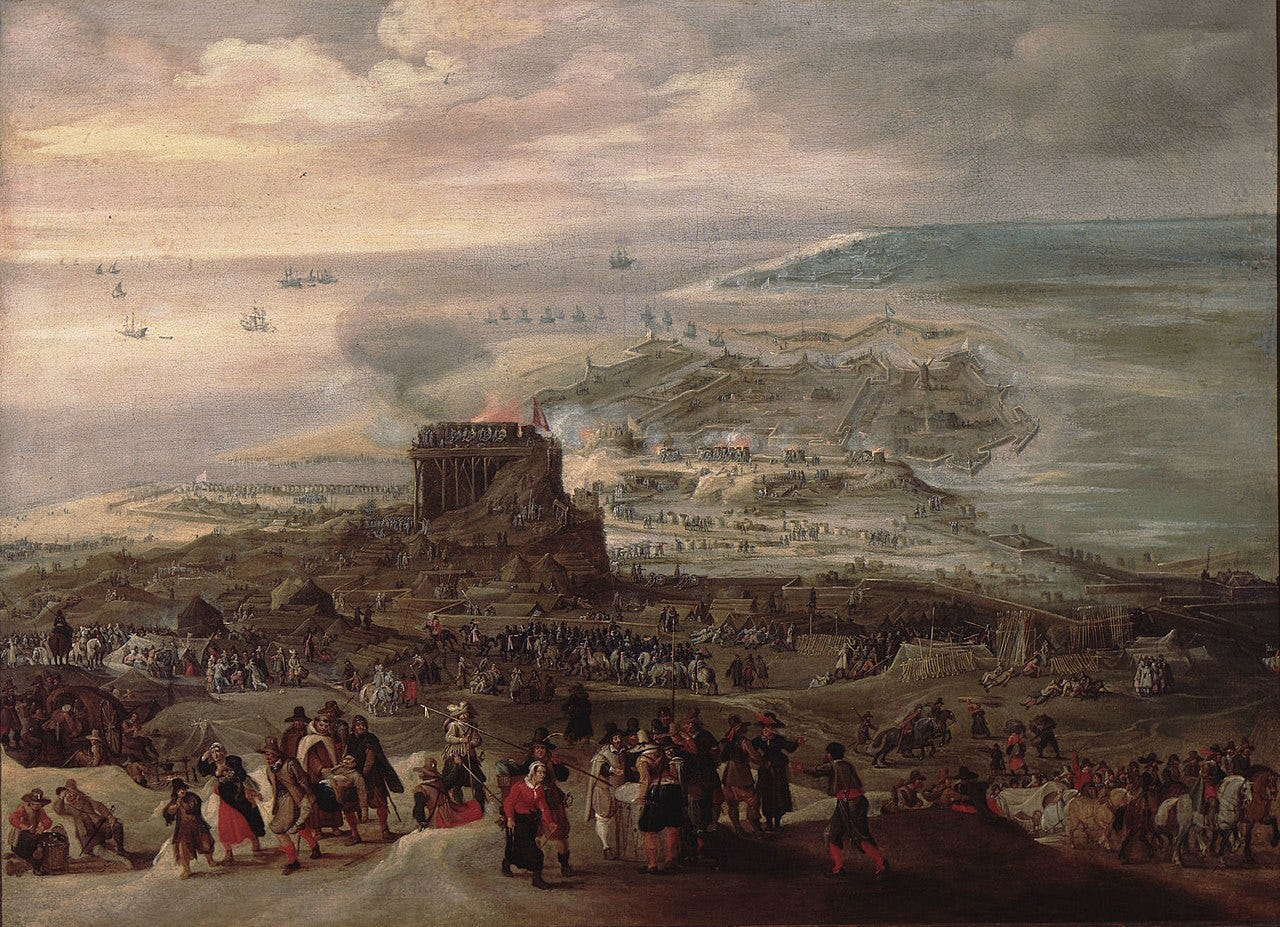
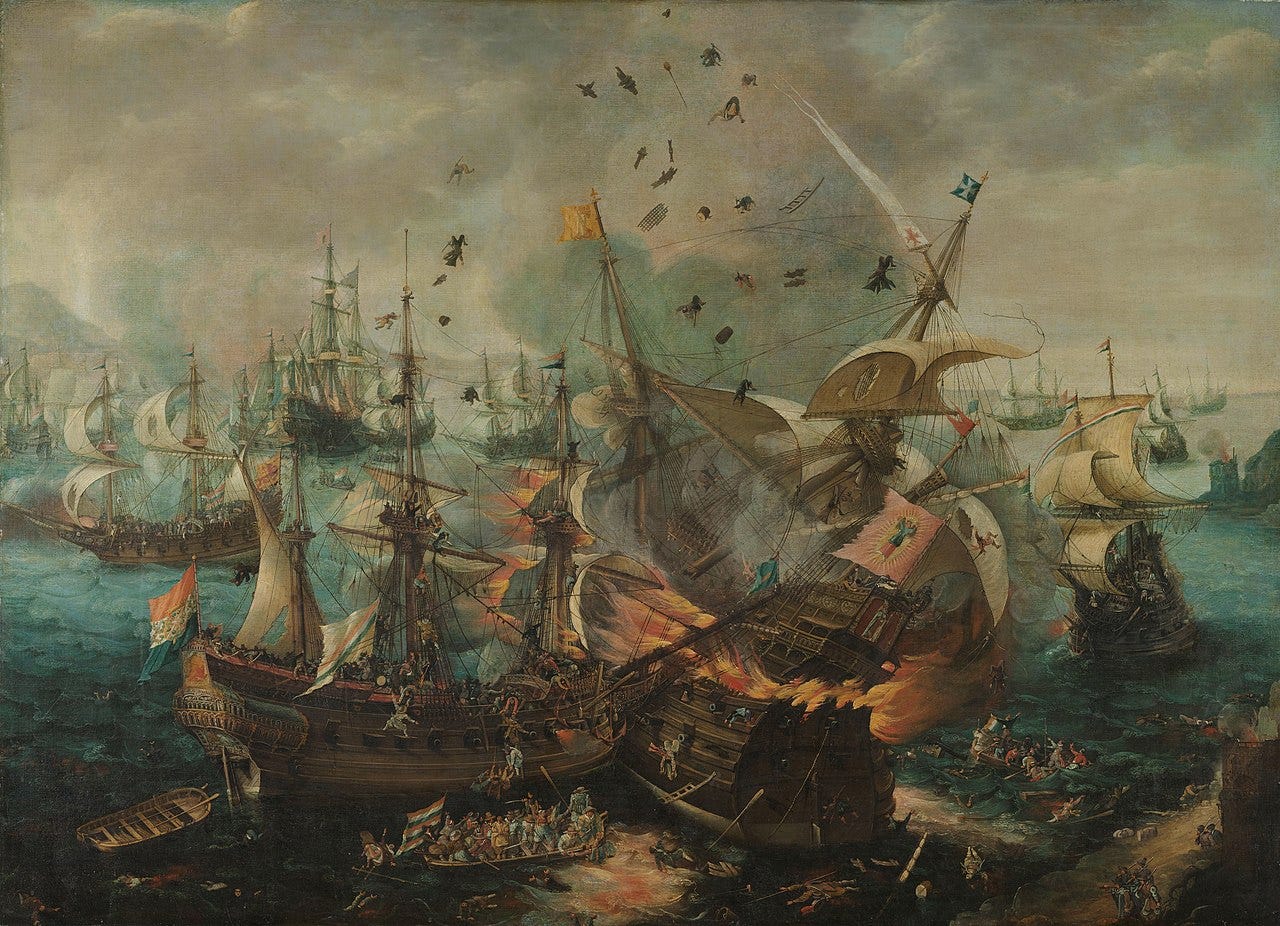
and then batu khan came and smoked all teh ganja in amsterdam until his death by being overwhelmed by the lung slaughtering uyghur kush pack